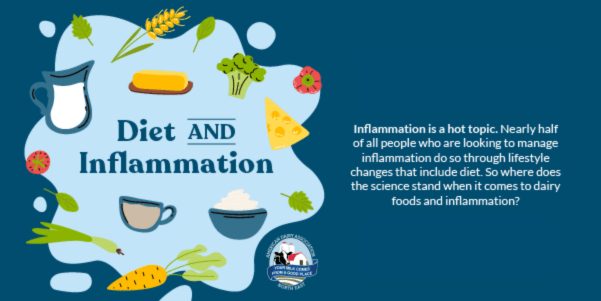The foods you eat contain a variety of vitamins, minerals, and other important nutrients that support your body’s health at all ages and stages. Dairy foods such as milk, yogurt, and cheese contain essential nutrients, including calcium, vitamin D, phosphorus, and potassium. All of these play a key role in building and maintaining healthy bones from early childhood to late adulthood, making dairy foods and bone health key.
As children and adolescents grow, their bone mass increases. Peak bone mass—the greatest amount of bone an individual can attain—occurs during the late teens and early 20s. A higher peak bone mass leads to a lower risk for osteoporosis later in life.
But even after you’ve reached peak bone mass, you should continue to consume dairy products regularly through adulthood. This will help maintain healthy bones and lower your risk of fracture and other bone diseases.
Daily Dairy Recommendations
The current Dietary Guidelines for Americans recommend the following daily servings of dairy for bone and overall health. Although current guidelines recommend low-fat or fat-free milk for children 2 and older, whole milk dairy can be part of your healthy eating plan.
| Age | Amount of Dairy Per Day |
| 6–12 months | Small amounts of yogurt and cheese, when the child is ready for them |
| 12–23 months | 1 2/3 to 2 servings whole and reduced-fat dairy foods |
| 2–3 years | 2 servings low-fat or fat-free dairy foods |
| 4–8 years | 2 1/2 servings low-fat or fat-free dairy foods |
| 9 years + | 3 servings of low-fat or fat-free dairy foods |
How Much is a Serving?
| 1 1/4 cups | cottage cheese |
| 1 cup | milk |
| 1 cup | yogurt |
| 1/2 cup | ricotta cheese |
| 1/3 cup | shredded cheese |
| 1 ½ ounces | hard cheese |
Here are five easy ways to include dairy in everyday meals and snacks.
What About Supplements?
Taking a daily supplement might seem easier—for meal planning and convenience—but whole foods offer more than a pill can. Milk, yogurt, and cheese will provide more nutrition, including essential vitamins, minerals and protein.
Connect with an expert Registered Dietitian Nutritionist to discuss supplements and determine if they are right for you.




